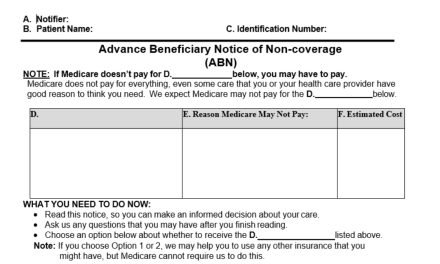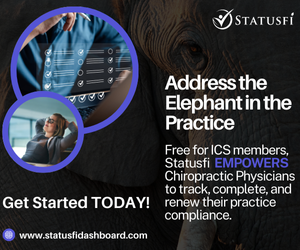
Creating a Culture of Compliance

Hopefully, you have a compliance program established in your office. A compliance manual collecting dust at the front desk is NOT a compliance program, in case you were wondering. Practices without compliance programs in place that treat Medicare, Medicaid or other federally insured patients are more likely to miss errors and potentially violate rules and regulations. The good news is that you don’t have to be the one to implement the program. In fact, many consultants recommend that you designate a trusted employee to act as the compliance officer for your practice.
When determining the best person to act as the compliance officer, it is important that he or she has some knowledge about compliance, your operation, documentation, and coding for chiropractic care. If you have someone who meets most, but not necessarily all, of the criteria, research practical training options including webinars, consultant training, and government resources.
Although your compliance officer will perform other duties in the practice, it is important to have a written job description for this aspect of his or her work in your practice, too.
A compliance officer will be responsible for:
- Overseeing and monitoring the implementation of the practice’s compliance program;
- Establishing methods, such as periodic audits, to assess risk and reduce the practice’s vulnerability to fraud and abuse of government programs, as well as improve the practice’s efficiency and quality of services;
- Periodically revising the compliance program to comply with changes in the practice or changes in the law and in the standards and procedures of government and private payer health plans;
- Developing, coordinating, and participating in a training program that focuses on the components of the compliance program;
- Ensuring the Office of Inspector General’s (OIG) List of Excluded Individuals and Entities, and the General Services Administration’s Excluded Parties List System, have been checked with respect to all employees, and independent contractors;
- Investigating reports or allegations concerning possible unethical or improper business practices, and monitoring subsequent corrective action and/or compliance.
The Office of Inspector General (OIG) established the seven core elements that can create a compliance program in a small physician practice.
They are:
- Written policies and procedures;
- A designated compliance officer;
- Effective training and education;
- Effective lines of communication;
- Internal monitoring and auditing;
- Enforcement of standards through well-publicized disciplinary guidelines; and
- Prompt response to detected problems through corrective actions.
As the business owner, it is important that you ensure policies are being followed and corrective action is being taken. Keep the lines of communication open with your compliance officer and team. Encourage questions and continued learning. You are already committed to providing outstanding care for your patients. Implementing a compliance program shows your commitment to responsible and ethical conduct. Be sure that your compliance program is thorough enough to be truly useful to your team and practice because programs that are superficial and hastily thrown together or “dusty” are considered worse than not having a compliance program at all. Compliance is a process, not an event. It is a vital part of the healthcare world, but it doesn’t have to be complicated. An effective compliance program in your office will improve efficiency, reduce errors, improve documentation, reduce denials, and improve communication in your practice.
Dr. Ray Foxworth is a certified Medical Compliance Specialist and President of ChiroHealthUSA. A practicing Chiropractor, he remains “in the trenches” facing challenges with billing, coding, documentation, and compliance. He has served as president of the Mississippi Chiropractic Association, former Staff Chiropractor at the G.V. Sonny Montgomery VA Medical Center and is a Fellow of the International College of Chiropractic. You can contact Dr. Foxworth at 1-888-719-9990, info@chirohealthusa.com or visit the ChiroHealthUSA website at www.chirohealthusa.com. Join us for a free webinar that will give you all the details about how a DMPO can help you practice with more peace of mind. Go to www.chirohealthusa.com to register today.



















